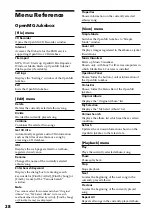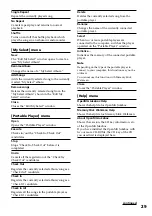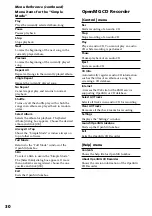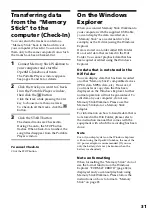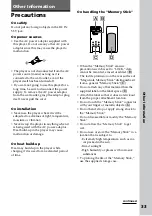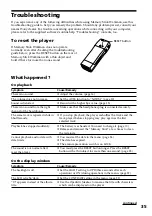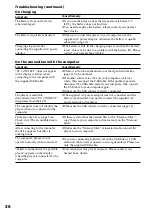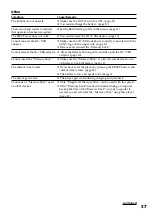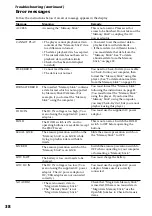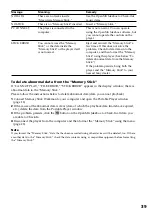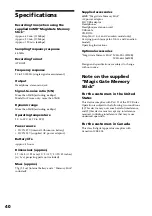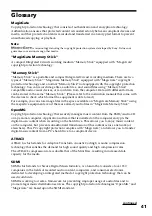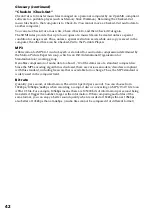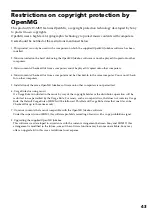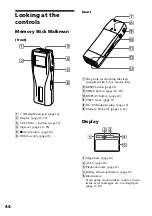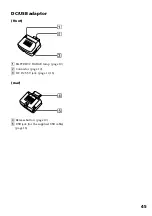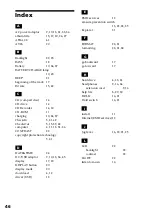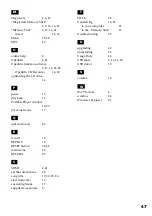
42
“Check-In /Check-Out”
Check-Out is to transfer music files managed on a personal computer by an OpenMG-compliant
software to a portable player (such as Memory Stick Walkman). Returning the Checked-Out
music files back to that computer is to Check-In. (You cannot move a Checked-Out audio data to
another computer.)
You can also Check-Out a music file, Check it back In, and then Check it Out again.
The SDMI rules provide that up to four copies of a music file can be created unless a special
condition for usage is set. Thus, unless a special restriction exists while one copy is saved in the
computer, the other three can be Checked-Out to the Portable Players.
MP3
Abbreviation for MPEG-1 Audio Layer3. A standard for audio data compression determined by
the Motion Picture Experts Group, which is an ISO (International Organization for
Standardization) working group.
It enables compression of audio data to about 1/10 of the data size of a standard compact disc.
Since the MP3 encoding algorithm is disclosed, there are various encoders/decoders compliant
with this standard, including freeware that is available for no charge. Thus, the MP3 standard is
widely used in the computer field.
Bit rate
Quantity, per second, of information. The unit is bps (bit per second). You can choose from
132kbps/105kbps/66kbps when recording a compact disc or converting an MP3/WAV file to an
ATRAC3 file. For example, 105kbps means there are 105000 bits of information per second being
transferred. Bigger the number, larger is the information. When comparing audio files of the
same format, you can enjoy a better sound quality when recorded at 132kbps than at 105kbps,
also better at 103kbps than at 66kbps. (Audio files cannot be compared if of different format)
Glossary (continued)

